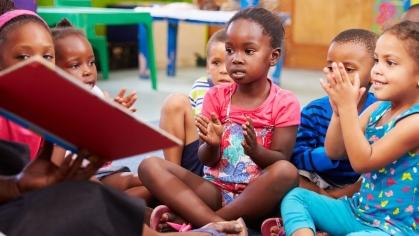An Interview with LISTA Certificate Program Director, Elsa Candelario on Hispanic Heritage Month
Professor of Professional Practice and Director of Latina/o/x Initiatives for Service, Training, and Assessment (LISTA) Certificate Program, Elsa Candelario focuses her practice work on supporting diversity and equity in nonprofit leadership as well as exploring social determinants of health related to immigrants and Latino/a communities while further understanding aveunes for cross sector collaboration, planning and advocacy. We recently spoke with Director Candelario about what Hispanic Heritage Month means to her and how social work students and practitioners can commemorate this month.
What is the significance of Latinx Heritage Month?
Hispanic/Latinx Heritage Month is a time to celebrate and explore the diverse cultures that form the United States. It begins on September 15th, a day that is on or close to the dates of independence of Costa Rica, El Salvador, Guatemala, Honduras, Mexico, and Chile. Since 1968, it has been a time for reflection and celebration of the story, contributions, and culture of Latina/os in America whose origins are from approximately twenty countries.
The significance of Hispanic/Latinx Heritage Month centers on preserving and highlighting the authentic lives and stories of one of America’s oldest and largest populations. We honor and remember the stories of scholars, heroes, activists, political figures, and others who struggled for a more equitable, more just America, not only for themselves but for all. As we recall their stories, the month represents a significant moment for us to have serious conversations about the work that remains to achieve equity and advancement for Latina/os.
We invite you to join in the conversations and celebrations during Hispanic Heritage Month.
Tell us about LISTA’s event commemorating Latinx Heritage Month:
Rutgers’ Master of Social Work (MSW) Certificate Program in Latina/o/x Initiatives for Service, Training, and Assessment (LISTA) was designed to give future social work practitioners the ability to provide culturally informed and responsive services to Latina/o/x populations.
On 9/26/22 at 4:30PM, we will host Marizaida Sánchez-Cesáreo, PhD, a Puerto Rican scholar who will speak about: “Implementation Science from an Intersectionality Approach: Lessons learned from the Caribbean”. Dr. Sánchez-Cesáreo will share her experiences with the implementation of the Family First Prevention Services Act (Family First) in Puerto Rico and other projects that collaborate with communities to improve health behaviors, increase knowledge, and improve health outcomes.
How can people commemorate Latinx Heritage Month beyond attending the event?
Across the United States, and in New Jersey in particular, many communities exist that are a microcosm of Latin American life. There are wonderfully diverse and thriving Latina/o/x enclaves in Elizabeth, Perth Amboy, Union City, Newark, Vineland, Camden, and Bridgeton, amongst many others. There exists a real opportunity for immersion and learning, right here in our home state. You can explore and experience the people, traditions, food, music, celebrations, and history while supporting Latina/o/x owned businesses. In addition, many Latina/o/x nonprofits in these cities offer vital community services and support. They can benefit from financial donations and volunteers.
Here are some additional suggestions for learning and acting:
- Learn about, join, or support the work of the many Rutgers Latina/o/x faculty, programs, and students.
Here are a few Rutgers departments and schools to consider:
https://socialwork.rutgers.edu/faculty
Department of Latino and Caribbean Studies
Center for Latin American Studies
Students at School of Arts and Sciences
Learn about the figures who have influenced and contributed to American Society by visiting the Smithsonian building of the National Museum of the American Latino to recognize Latino communities' accomplishments, history, and culture.
- Congress enacted legislation in 2020 to establish an American Latino Museum in Washington, DC. The planning process is currently underway. Learn more about the American Latino Museum.
Visit PBS online to access The Latino Americans, “the first major documentary series for television to chronicle the rich and varied history and experiences of Latinos.” The United States ranks second in the size of the Latina/o/x population worldwide numbering more than sixty million individuals and accounting for more than half of the total US population growth from 2010-2020.



